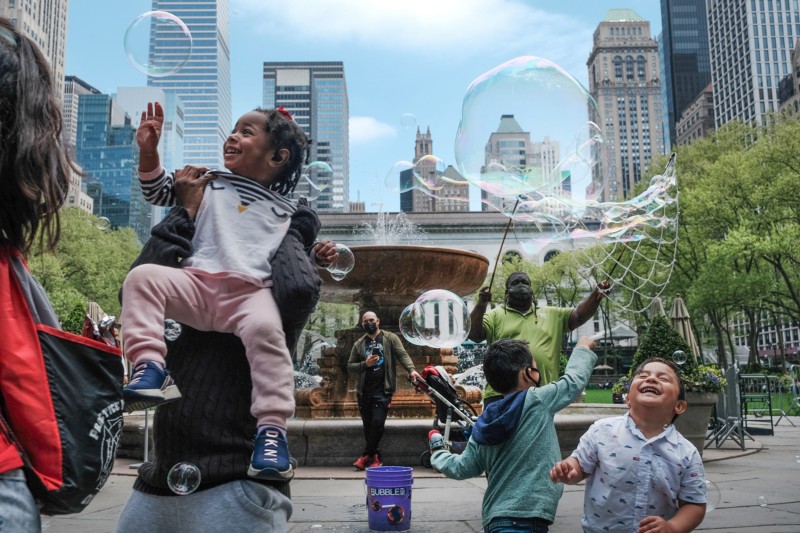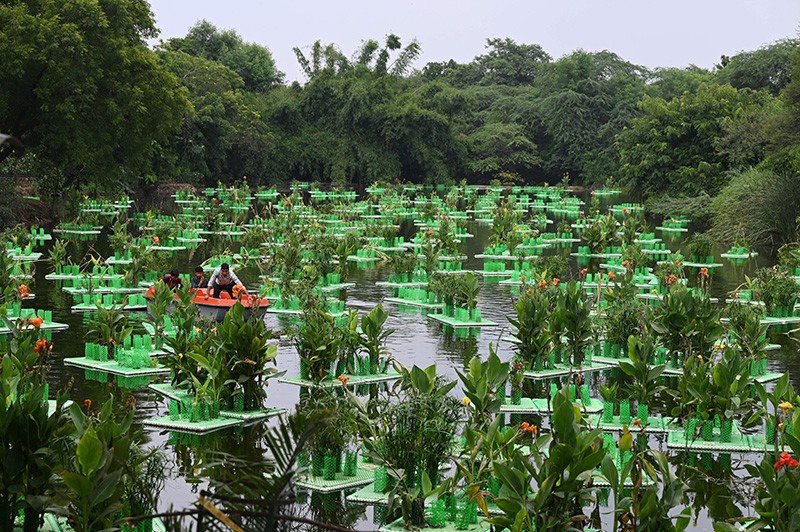Hello Nature readers, would you like to get this Briefing in your inbox free every day? Sign up here.
Why most kids don’t get severe COVID
One of the few silver linings of the pandemic is that children relatively rarely experience the most severe illness. This phenomenon is not entirely surprising to immunologists. With other viruses, adults have the advantage of experience: through previous infection or vaccination, their immune systems have been trained to deal with similar-looking pathogens. But the novelty of SARS-CoV-2 levelled the playing field, and showed that children are naturally better at controlling viral infections. Scientists are exploring how ‘innate immunity’ might protect children, why some kids still get very ill and how the Delta variant might change the rules.
Hear a duck swear like an Australian
Wild musk ducks (Biziura lobata) learn to make high-pitched whistles from older members of their flock. But hatchlings raised in captivity can mimic sounds they hear around them, from their aviary door squeaking to a caretaker saying “You bloody fool”. Recordings offer evidence that the Australian waterbirds might be part of a rare group of species, including parrots, whales, bats and people, that can learn to vocalize sounds from what they hear as infants.
Reference: Philosophical Transactions of the Royal Society B paper
CRISPR takes on sickle-cell disease
A pioneering gene therapy uses CRISPR–Cas9 genome editing to target the root cause of sickle-cell disease, a painful and debilitating condition that affects more than six million people. It is caused by a flaw in the body’s oxygen-carrying protein, haemoglobin, and the treatment aims to boost the production of an alternative form of the protein, called fetal haemoglobin. A clinical trial has already achieved exciting results, but the challenge will be to reach those most in need.
This video is part of Nature Outlook: Sickle-cell disease, an editorially independent supplement produced with the financial support of CSL Behring.
Features & opinion
Five keys to reproducible lab protocols
Every laboratory scientist has a horror story about incomplete detail in a protocol leading to wasted hours — or years. Communicating experimental methods more reproducibly, research-improvement advocates say, requires changes to both mindset and workflow. Strategies that can help include documenting as you go, and embracing video and diagrams.
A user’s guide to the the genetic lottery
The controversies that haunt behavioural genetics take centre stage in a profile of psychologist and behavioural geneticist Kathryn Paige Harden. In her research and popular-science work, Harden attempts to walk a tightrope across the chasms of racism, inequality and eugenics — sometimes drawing ire from both extremes of the political spectrum. It is also part of a wider attempt to develop a new moral framework for talking about genetics. “Genetic differences between us matter for our lives. They cause differences in things we care about,” says Harden. “Building a commitment to egalitarianism on our genetic uniformity is building a house on sand.”
‘I decided to break the scientific rules’
In January 2020, veterinary pathologist Thijs Kuiken spotted chilling evidence in a paper that he was reviewing for The Lancet: COVID-19 could be transmitted between humans. The information needed to be shared urgently with the world, he felt, but journal reviewers are forbidden from making unpublished manuscripts public. With the support of The Lancet, Kuiken ended up passing his summary of the findings directly to the World Health Organization. “There are no clear guidelines or agreements about how reviewers of scientific manuscripts should deal with such crucial information during public health emergencies,” says Kuiken. “I’ve done it outside the rules. It should be possible within.”
Image of the week
Thousands of wetland plants on floating platforms have been installed in Sanjay Van Lake in New Delhi as part of a plan to improve the quality of the water. Officials say these ‘floating wetlands’ can help to clean the lake by absorbing pollutants and providing surfaces for beneficial bacteria to grow on. Similar floating wetlands have been established in four nearby lakes, and there are plans to introduce them to others as part of wider clean-up efforts.
See more of the month’s sharpest science shots, selected by Nature’s photo team.
"hear" - Google News
September 07, 2021 at 02:00PM
https://ift.tt/3BRd3Kp
Daily briefing: Hear a duck swear like an Australian - Nature.com
"hear" - Google News
https://ift.tt/2KTiH6k
https://ift.tt/2Wh3f9n
Bagikan Berita Ini
















0 Response to "Daily briefing: Hear a duck swear like an Australian - Nature.com"
Post a Comment